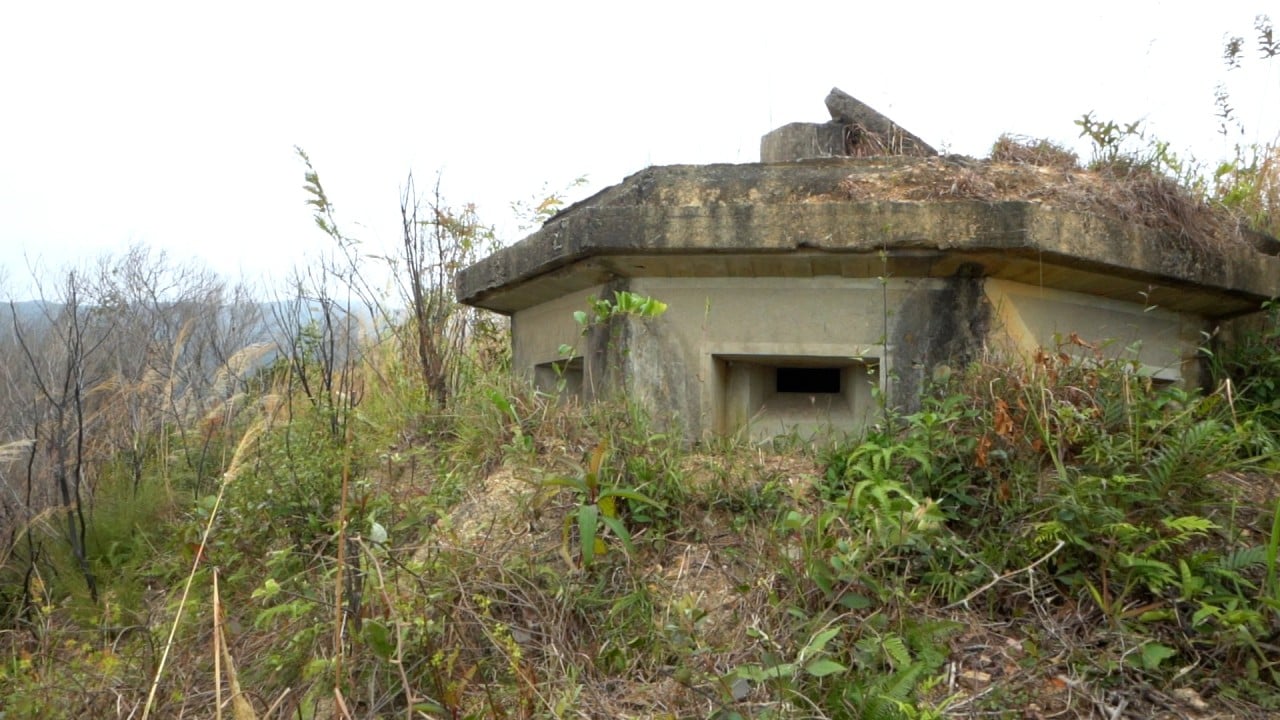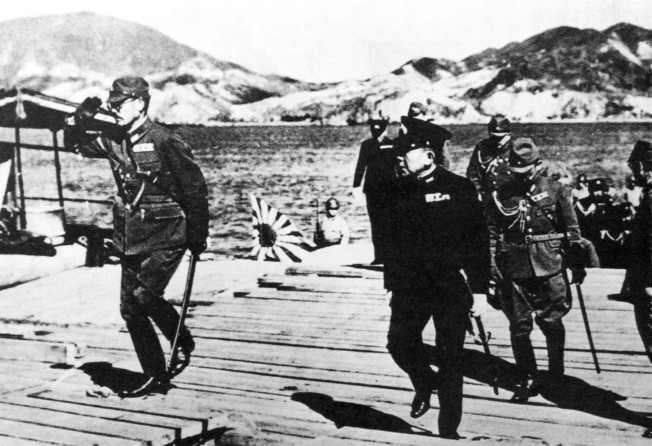
03:11
Neglected Japanese wartime military ‘pillboxes’ offer a window to Hong Kong’s World War II past

On December 8, 1941, I left my family’s home in Hong Kong and set off for school as usual, only to hear our maid frantically yelling for me to return. While I did not know it at the time, hours earlier and over 8,000km away, the Japanese had attacked the US fleet at Pearl Harbour.
Now, the attack many in Hong Kong had believed would never come was under way. A combined force of 14,000, including British, Canadian, Indian and local forces, held out for 18 days before surrendering the city.
The attack should hardly have come as a surprise. Hong Kong had been virtually surrounded by Japanese forces since 1938, when they seized neighbouring Guangzhou. In September 1939, Ian Morrison, the honorary attaché at the British Embassy in Tokyo, stopped in Hong Kong on his way back to Britain.
He noted even then “nobody pretends that the position of the Colony is strong” but remarked that the people seemed complacent and uninterested in Japan’s movements.
With Britain occupied by the war in Europe that was turning disastrous, strengthening the isolated garrison in Hong Kong was hardly a priority. Then British prime minister Winston Churchill and his advisers hoped Japan would be so bogged down in mainland China that it would exhaust its resources before it could consume Hong Kong.
Others pompously believed that the Japanese military had “neither the audacity nor capability” to seize the colony. Britain’s plan in the event of an attack was for the garrison to hold out until reinforcements could arrive from Singapore.
In late summer 1941, concern over morale and prestige prompted the decision to dispatch two battalions from Canada to reinforce the Hong Kong garrison. The Canadians arrived on November 16, less than three weeks before the fighting started.
The Japanese forces were led by Lieutenant General Takashi Sakai, who was instructed to take the city within 10 days. While the British-led forces held out for less time than London had hoped, the resistance was stronger than Tokyo planned.
My family spent the duration of the fighting hunkered down inside our home. One member of the household was killed by a bomb shell in the garage. I left the house on December 25, the day the British surrendered, and saw a group of Japanese soldiers hang a Chinese man upside down from a tree and beat him.
Two days after the surrender, two Japanese military vehicles pulled up to our house carrying none other than General Sakai himself. I immediately feared he had come to arrest my father, a high-ranking general in the Kuomintang Army.

To my surprise, Sakai entered our house and warmly shook hands with my father, who I learned was an old friend from their days as classmates in Tokyo. Rather than arrest my father, Sakai asked if there was anything we needed. When my father asked for provisions, Sakai sent enough food and water for us to share with our neighbours.
My father then asked Sakai to arrange transport for my family to Chongqing, where the Kuomintang government had relocated. Sakai would not do this, but he agreed to arrange a cargo ship to Shanghai instead.
When our household of 47 people arrived at the docks to meet the ship, the Japanese were initially reluctant to allow us all to depart. Again, it was Sakai who intervened and personally authorised our entire party’s departure.
I am still amazed by these acts and their stark contrast to the brutality of Sakai’s forces towards the civilian population and captured soldiers during the battle and throughout the occupation of Hong Kong. More soldiers died in POW camps than in the 18 days of fighting. An estimated 4,000 civilians were killed during the days of battle. Thousands of women were raped.
In the ensuing occupation that lasted nearly four years, the loss of life is difficult to quantify. Tens of thousands died from starvation and malnutrition. Hundreds of thousands attempted to flee to the mainland, a journey that claimed many lives.
Others were forcibly evacuated as the Japanese attempted to limit the city’s population. Some were forced onto boats that abandoned them on deserted islands or were burned and sank in the harbour. For these actions Sakai would be executed in 1947.
The journey in the cargo ship that took us away from Hong Kong was tense. We were all aware that our vessel would be a target for any American submarine operating in the area. Then a hurricane forced us to stop in Taiwan overnight. We finally made it to Shanghai and took a train to Beijing, where we spent the duration of the war.
It was there during a theatre production on August 15, 1945, that I learned of the Japanese surrender. On August 30, a British fleet returned to Hong Kong and the city was liberated.
There are few survivors left to tell their stories of the battle, surrender and occupation of Hong Kong. That the battle’s outbreak coincided with the attack on Pearl Harbour and the surrender occurred on Christmas Day means the dates themselves often fail to resonate in the West.
Hong Kong stopped officially celebrating Liberation Day when British rule ended in 1997. Yet, 80 years later, I still remember these events and my family’s experience and find it difficult to reconcile the idyllic years of my childhood spent in Hong Kong with the horrors of our final days there, not to mention those when we escaped because of Sakai’s uncharacteristic act of generosity to a former classmate.
Chi Wang, a former head of the Chinese section of the US Library of Congress, is president of the US-China Policy Foundation